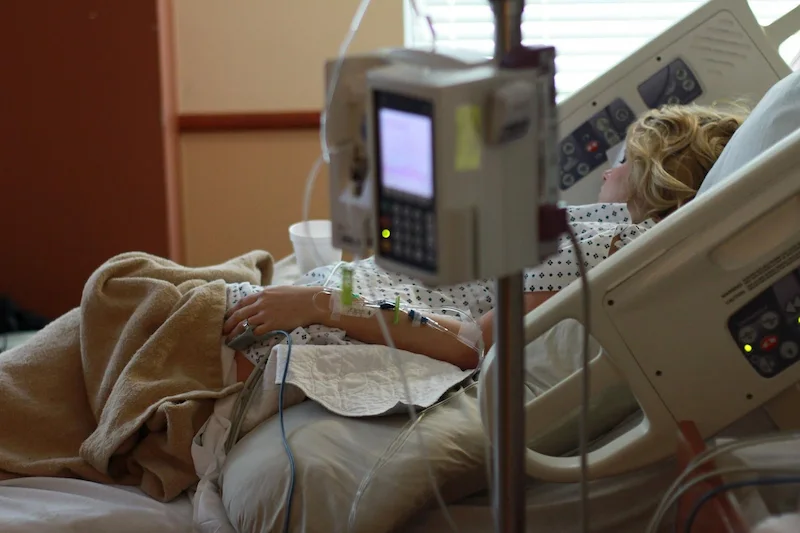Table of Contents
Mental health conditions can be complex and multifaceted, requiring a tailored approach to treatment. Among the various treatment options available, Partial Hospitalization Programs (PHPs) have gained recognition for their effectiveness in addressing serious psychological disorders. PHPs provide a structured environment that allows patients to receive intensive care while still living at home or in a supportive community. This balance helps to bridge the gap between outpatient therapy and more intensive inpatient care, an appealing option for many.
Cost-Effectiveness Compared to Inpatient Care
When considering treatment options, the cost is always the first factor to consider — and PHPs prove more economically viable than traditional inpatient care. PHPs are less expensive and provide intensive treatment for patients and their families. Because PHPs allow individuals to return home each evening, there are significant cost savings related to accommodation and meals that come with inpatient treatment.
For many people experiencing complex mental health conditions, the potential to receive high-quality care without incurring substantial medical debt is vital. You can choose a partial hospitalization program in Florida, for instance, to further enhance these benefits through a diverse range of available resources and support services. As healthcare continually evolves, understanding the economic advantages of PHPs can motivate more individuals to consider this effective treatment option.
A Structured Environment for Healing
Among the primary advantages of PHPs is the structured environment they offer, helping individuals focus on their mental health without the distractions of daily life. These programs provide a rigorous schedule that includes therapy sessions, medication management, and educational workshops.
Patients engage in multiple therapeutic modalities, such as cognitive-behavioral therapy (CBT) and dialectical behavior therapy (DBT), designed to address various aspects of their conditions. Such well-defined frameworks can enhance patients’ engagement in their recovery process. When you are evaluating the benefits of PHPs, you can find that the dedicated structure correlates with better patient outcomes. Many individuals find this model accommodating yet challenging enough to foster progress, marking a clear advancement in their mental health journey.
Continuous Support and Resources
Another compelling aspect of PHPs is the accessibility to continuous support and resources. Many programs operate during the day, allowing patients to return home in the evenings. This returning to a stable home environment provides individuals with essential support systems from family and friends. PHP participants also have access to a range of specialists, including psychiatrists, psychologists, and social workers, who work collaboratively to ensure comprehensive care.
These programs frequently offer group therapy as a vital resource where participants can share experiences and learn from each other. Engaging with peers fosters a sense of community and accountability, which is crucial for emotional recovery. This valuable combination of professional guidance and peer support creates an environment conducive to healing and personal growth.
Personalized Treatment Plans
The effectiveness of PHPs is also largely attributed to personalized treatment plans tailored to each patient’s unique needs. Upon entry into a PHP, individuals undergo thorough assessments by mental health professionals to identify the most relevant therapies. This personalized approach involves developing a strategic plan that outlines specific goals and interventions over several weeks or months.
Ongoing evaluations adjust these plans as necessary to reflect progress and changing needs. By fostering individualized care, PHPs increase the likelihood of successful treatment outcomes. Patients may engage in self-discovery throughout the process which empowers them to face their challenges head-on. This individualization captures the essence of a patient-centered approach, where one’s treatment journey is uniquely sculpted to empower recovery.
Flexibility and Family Involvement
The most notable benefit of PHPs is the flexibility they provide to both patients and their families. Unlike traditional inpatient settings, PHPs can typically adapt to the varying schedules of participants, allowing them to maintain personal obligations at work, school, or caregiving. For both the patient and their support system, adaptability has a high influence on mental well-being.
Many PHPs encourage family involvement throughout the treatment process. By including family members in therapy sessions and educational workshops, programs foster a more profound understanding of mental health challenges and treatment. Such involvement helps to create an environment of support for the patient even after they complete the program, reducing the chances of relapse. Know that the involvement of loved ones enhances the healing process and strengthens familial bonds and support networks critical for a lasting recovery.
Evidence-Based Approaches for Treatment
PHPs employ evidence-based interventions that are supported by scientific research, ensuring effective treatment for complex conditions. Many programs utilize proven therapeutic modalities like CBT, which focuses on identifying negative thought patterns and behaviors while encouraging positive change.
Data shows that individuals engaged in such evidence-based therapies often experience measurable improvements in their mental health. The structured paradigm of a PHP emphasizes therapy and integrates medication management when necessary, which optimizes treatment effectiveness even further. Standardizing these components allows for consistency in care delivery, adhering closely to practices linked to successful outcomes. As research evolves, these programs remain active in adapting their techniques, maintaining the integrity and relevance of their offerings in a dynamic mental health landscape.
Promoting Long-Term Recovery and Relapse Prevention

For many participants, the ultimate goal of PHPs is to promote long-term recovery and reduce the risk of relapse. When providing patients with practical coping strategies, PHPs equip individuals to manage their symptoms effectively after leaving the program. This holistic approach often encompasses life skills training, stress management, and self-care practices for sustaining mental health.
Besides focusing on symptom management, PHPs emphasize the importance of building a supportive community. After the program, many individuals maintain contact with peers or return for alumni events so that they feel connected beyond structured care. This social component is indispensable; studies reveal that involvement in support groups enhances ongoing recovery efforts. Collectively, these strategies present PHPs as a formidable ally in fostering lasting improvements in mental health understanding and overall well-being.
PHPs bridge the gap for individuals grappling with complex mental health conditions. When they combine structure with personalized treatment, they provide essential skills and support necessary for long-lasting recovery. This well-rounded approach addresses immediate challenges and, most importantly, prepares individuals for sustainable mental health journeys ahead.
Want to explore something different? Outdated Processes Are Costing You More Than You Think—Here’s How to Fix Them

